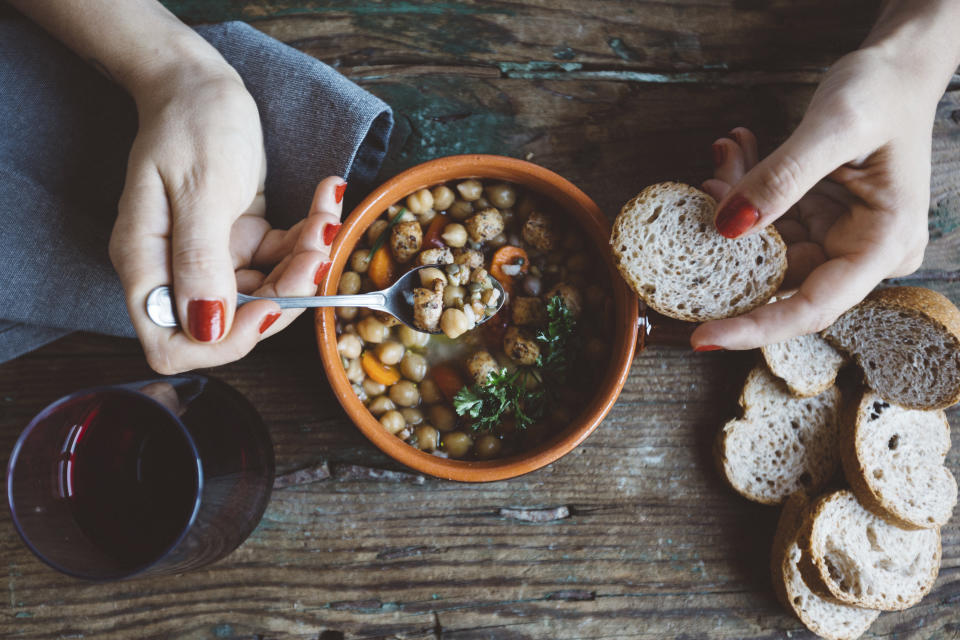Recognising and dealing with grief is key to mental health during the pandemic

Melissa Hemsley lost her father six years ago, but it was only at the end of last year that she finally got to grips with her grief.
Speaking on White Wine Question Time podcast, the food writer and ambassador for Mental Health Mates charity said she has become a keen advocate of us talking more about our feelings – especially when it comes to grief.
“I would so love there to be more grief courses,” she said. “It doesn't have to be someone dying. It could be loss of a job, loss of the person you thought you're going to be. Empty nest syndrome is a big one: one when kids are leaving home or loss of a big chunk of what feels like yourself.”
Let’s face it: we’re likely all experiencing something akin to grief during these unsettled times. So here’s the advice on how to face it, and not ignore it.
Find those things that spark joy
It could be cleaning (yes, really), watching your favourite box set or buying shoes, but whatever makes you happy, make sure you do it on a regular basis. Unsurprisingly for Melissa, her happy place happens in the kitchen.
“For me, even if I don't need to make a soup because my freezer is bursting with soup, I'll make a soup,” she revealed.
READ MORE: Supermarket out of dry pasta? Here's how to make it from scratch
“I'll put on Classic FM and I'll put on soup. It doesn't matter what I'm putting in, it's just actually the act of having a couple of ingredients and then having a finished thing and making something.”
She continued: “That's why cooking is really good: it's therapeutic. If your job is not going well, or when you feel like ‘I can't do anything right’... Everyone can put a soup together.’”

There are many grief traits that affect everyone
Cruse Bereavement Care, a charity, which offers support to people who have lost somebody, says that there are common traits of grief – and all of them are natural.
They say: “After a death you may initially feel shocked, numb, guilty, angry, afraid and full of pain. These feelings may change to feelings of longing, sadness, loneliness − even hopelessness and fear about the future. These feelings are not unnatural, or wrong. They are all ‘normal’ reactions to what may be the most difficult experience of your life.”
READ: Why do we still feel the need to apologise when we cry?
Melissa said her course helped her to understand about these different stages.
“I've been working on the grief and I know now from my course you've got to work on three main things, which is sadness, forgiveness and anger,” she said.
But anger is the hardest one of them to deal with
Anger is a very natural, but perhaps a surprising emotion, when dealing with grief.
“A lot of people don't do the anger very well,” Melissa told Kate. “It could be anger at feeling abandoned because even though the person you love has died, they didn't choose to - it can feel like abandonment.
She continued: “Something really interesting I learned is that women struggle to go through the anger phase because it's programmed that anger is an ugly emotion for you to show, and anger is not feminine.
“And so, we quiet our anger and we like bubble it away. We reduced it – like a jus.”
READ MORE: How to cope with grief at work
Cruse have said that during the COVID-19 pandemic, anger could be heightened, but that it’s more important than ever to talk about it.
They write on their website that talking about your feelings with someone you trust may help: “Remind yourself that these are exceptional times, and that most people have been trying to do their best without the usual rules to help.”

Understand that grief is different for everyone
While most people expect those that are grieving to be sad, Melissa says that’s not always the case.
“Grief can look like hysterical laughter,” she says. “It can look like all sorts of things.”
READ MORE: Stay home and reminisce: The nostalgic box sets keeping our spirits up
In fact, she’s found laughter to be the best medicine for her, which is why she’s found herself binge watching classic comedies like The Vicar Of Dibley.
“The Vicar Of Dibley and Miranda… That's canned laughter and there's just something… I feel like perky and happy and childlike. I think it's so important to laugh.”
Hear Melissa talk more about coping with grief, why couples counselling works for her and how she’d love a breezy button on this week’s episode of White Wine Question Time. Listen now on iTunes and Spotify.


